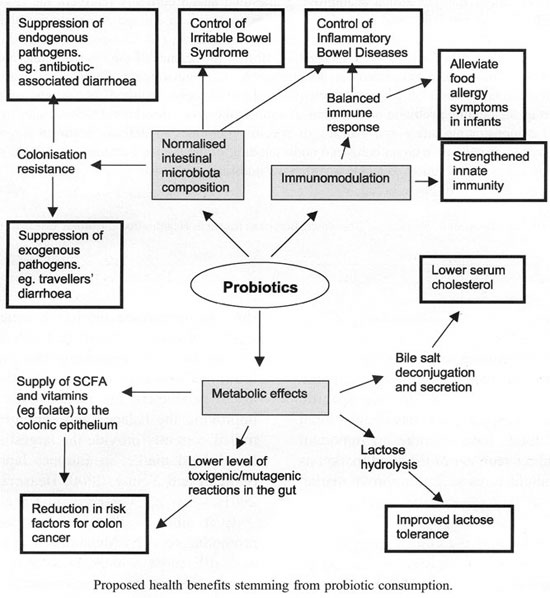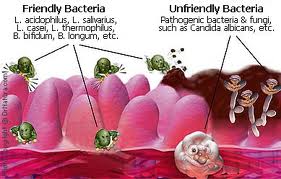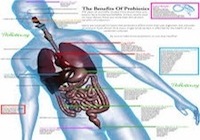As many people can attest, solving chronic intestinal issues can be a very complicated process. Identifying food allergies (IgE and IgG) and food intolerances (lactose or fructose) can help some, but it is often a long, difficult, expensive and sometimes inefficient process.
In any case, manipulation of food choices does not constitute the only strategy, underlining also the usefulness of probiotics (good bacteria), prebiotics (their food of predilection), digestive enzymes and diverse digestive aids such as hydrochloric acid, ox bile, fiber, and also several plants that aid digestion.
More information on these intestinal treatments is on my website www.gmouton.com in the conference ad hoc (Intestinal Ecosystem /5 G.I. Ecology 4) and in my book “Ecosystème Intestinal & Santé Optimale” (Intestinal Ecosystem & Optimal Health) (particularly look at the last three chapters).
 The last chapter is specifically focused on inflammation of the intestinal mucosa, which increases permeability with disastrous consequences on the immune system (allergies, auto-immunity, inflammation) and the capacity to absorb nutrients (deficiencies). Always take into account the inextricable partnership between the microflora and the mucosa when considering the intestinal ecosystem.
The last chapter is specifically focused on inflammation of the intestinal mucosa, which increases permeability with disastrous consequences on the immune system (allergies, auto-immunity, inflammation) and the capacity to absorb nutrients (deficiencies). Always take into account the inextricable partnership between the microflora and the mucosa when considering the intestinal ecosystem.
In fact, a third partner exists in the ecosystem. It is its immune component. Indeed, did you realize that the great majority of our immune system cells line the intestine? They are in the underlying tissues of the mucosa and of course, everything interacts: the microflora, the mucosa, and the immune cells all act in combination.
If you feel you have worked hard to improve your microflora and the intestinal mucosa but have not seen results, it is probably because the immune system doesn’t protect the intestines against the overgrowth of micro-organisms or invasive pathogens. In this case we also have to treat the immune system!
In such instances, additional therapeutic avenues are open: you may correct deficiencies in nutrients crucial for the immune system (Vitamin D, vitamin K, Vitamin A, zinc, iron) and identify any potential thyroid or adrenal weakness: as these glands play a critical role in the maintenance of efficient intestines. We shall review in future blogs how to identify both an underactive thyroid and adrenal insufficiency through their respective symptoms.
 Here we find a double challenge: the diverse presentation of symptoms from one patient to another, due to the fact that these glands impact numerous organs and functions. And nobody has the "perfect picture", i.e. no one suffers all thyroid or adrenal symptoms simultaneously, which is a good thing! One must then show some investigative flair and accumulate patient information plus especially obtain laboratory confirmation. Multiple symptoms can appear with different pathologies (we then can say that they are not pathognomonic). It is not that simple, but the examination of a disturbed immune system can very often explain the most stubborn cases, hence the critical importance of evaluating thyroid and adrenal function in the most sensitive patients.
Here we find a double challenge: the diverse presentation of symptoms from one patient to another, due to the fact that these glands impact numerous organs and functions. And nobody has the "perfect picture", i.e. no one suffers all thyroid or adrenal symptoms simultaneously, which is a good thing! One must then show some investigative flair and accumulate patient information plus especially obtain laboratory confirmation. Multiple symptoms can appear with different pathologies (we then can say that they are not pathognomonic). It is not that simple, but the examination of a disturbed immune system can very often explain the most stubborn cases, hence the critical importance of evaluating thyroid and adrenal function in the most sensitive patients.






